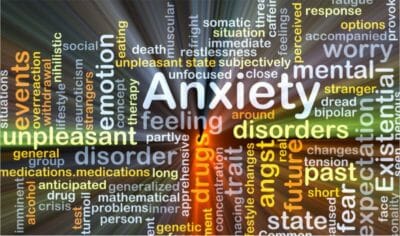Last Updated on May 17, 2022 by

Alternative to Meds Editorial Team
Written by Diane Ridaeus
Medically Reviewed by Dr Samuel Lee MD

Last Updated on May 17, 2022 by

Alternative to Meds Editorial Team
Written by Diane Ridaeus
Medically Reviewed by Dr Samuel Lee MD



Concerns have been raised about over-prescribing antidepressant drugs, as the above list of off-label uses seems to clearly underscore, as well as disappointing efficacy and harmful side effects of SSRIs.9,10
Stopping or even reducing an SSRI can bring on what feels like a bad case of the flu. Everything from diarrhea, nausea, and headache to chills and fatigue may hit. Additionally, electric zaps, vivid dreams or nightmares, restless sleep, feelings of anxiety, irritability, agitation, crying spells, or other mood swings, dizziness or losing one’s balance, worsening depression, and thoughts of suicide might occur. Gastrointestinal issues, nausea, vomiting, and abdominal pains can also manifest during SSRI withdrawal. Another set of SSRI withdrawal symptoms includes sensory disturbances, mania, or hyperarousal. Lack of support and not seeking or receiving proper treatment can turn these symptoms into a critical situation and can affect how long they last or how severe they become.11
Sometimes a patient’s SSRI withdrawal symptoms are tragically misconstrued as returning depression, and the patient is diagnosed as a relapse case and given improper treatment. There is no doubt that SSRI withdrawal symptoms can be debilitating and baffling to someone who is not familiar with SSRI withdrawal.12

For a person who has taken SSRI medications for 5 years, a good analogy might be walking on a tightrope with no net, about 100 feet off the ground. Above all, coming off these drugs slowly and with adequate support is absolutely essential for a smooth and safe ride back down to solid, safe ground.
Research published in The Lancet Journal of Psychiatry reported that very slow, gradual tapering of SSRIs down to sub-therapeutic levels had more successful outcomes compared to more abbreviated tapering protocols.13
First, never abruptly cut or stop your dosage. Doing that can be disastrous. Most importantly, gradual changes will be easier to tolerate and live with than trying to go too fast and ending up in a health crisis.
Second, get a trusted practitioner who is familiar with SSRI withdrawal symptoms to guide you, who won’t be confused by your SSRI withdrawal symptoms, and who won’t diagnose withdrawal as a case of relapse, and declare that you need to take SSRIs for life. Please don’t try stopping SSRI drugs on your own.
Third, prepare to take some time off work if you can, have a companion or helper you can enlist, or even better, arrange a stay at an inpatient clinic. That way, you can focus on getting well, not juggling the rest of your life around your titration. As a result, an inpatient program can shorten the length of time required but you should be prepared to set aside at least some weeks or months as a realistic target for fully getting off SSRI medication. Should you choose to do SSRI withdrawal at home, before you start the process, get in the groceries you will need, including simple-to-prepare foods, fresh fruit, and vegetables, protein, yogurt, soups, comfort foods you like and have good quality water on hand. Arrange someone to help with house cleaning chores and errands, or accompany you on a leisurely walk outdoors when you feel up to it. You may not want to have to drive or go out shopping before you stabilize. You can view specific tapering guidelines and recommended protocols for your specific medication on our medication tapering pages.
Certainly, the Alternative to Meds program offers ways and means to address underlying causes for depression, anxiety, and other unwanted symptoms. That is to say, medical conditions can be checked for and addressed rather than masked with drugs. For example, thorough lab testing provides a clear pathway for treating nutritional deficiencies. In this way, purging the system of accumulated environmental toxins greatly helps in restoring stable and healthy neurochemistry. Safe gradual SSRI withdrawal managed by a medical team can be optimized with diet and supplementation, neurotoxin removal, neurotransmitter rehabilitation, sauna and spa services, equine therapy, peer support and a host of other kinds of help are provided to our clients to make the withdrawal process much easier to tolerate.
To summarize, our inpatient treatment program provides medical oversight, private and group counseling in a number of genres, Life Coaching, and trainer-led exercise classes (gentle). Each client is guided at their own level of ability and tolerance.
Cranial-sacral and other therapeutic massage plus Reiki, yoga, acupuncture, mineral baths, stress-reduction training, brain health and nutrition education, and much more can be viewed on our services overview pages. Please call us to find out more about the kinds of help we offer in our inpatient SSRI withdrawal program.
1. Jannini TB, Lorenzo GD, Bianciardi E, Niolu C, Toscano M, Ciocca G, Jannini EA, Siracusano A. Off-label Uses of Selective Serotonin Reuptake Inhibitors (SSRIs). Curr Neuropharmacol. 2022;20(4):693-712. doi: 10.2174/1570159X19666210517150418. PMID: 33998993. [cited 2022 May 17]
2. Stone KJ, Viera AJ, Parman CL. Off-label applications for SSRIs. Am Fam Physician. 2003 Aug 1;68(3):498-504. PMID: 12924832. [cited 2022 May 17]
3. FDA label Prozac [approval 1987] [cited 2022 May 17]
4. FDA label Celexa [approval 2002] [cited 2022 May 17]
5. FDA label Zoloft [approval 1991] [cited 2022 May 17]
6. Chu A, Wadhwa R. Selective Serotonin Reuptake Inhibitors. [Updated 2022 Jan 11]. In: StatPearls [Internet]. Treasure Island (FL): StatPearls Publishing; 2022 Jan-. Available from: https://www.ncbi.nlm.nih.gov/books/NBK554406/ [cited 2022 May 17]
7. APA Report, Paraphillic Disorders [published online 2013] [cited 2022 May 17]
8. Alduhishy M. The overprescription of antidepressants and its impact on the elderly in Australia. Trends Psychiatry Psychother. 2018 Jul-Sep;40(3):241-243. doi: 10.1590/2237-6089-2016-0077. Epub 2018 Aug 23. PMID: 30156645. [cited 2022 May 17]
9. Spence D, Are antidepressants overprescribed? Yes. BMJ 2013;346:f191 [cited 2022 May 17]
10. Middleton H, Moncrieff J. ‘They won’t do any harm and might do some good’: time to think again on the use of antidepressants? Br J Gen Pract. 2011 Jan;61(582):47-9. doi: 10.3399/bjgp11X548983. PMID: 21401992; PMCID: PMC3020050. [cited 2022 May 17]
11. Warner CH, Bobo W, Warner C, Reid S, Rachal J. Antidepressant discontinuation syndrome. Am Fam Physician. 2006 Aug 1;74(3):449-56. PMID: 16913164.
12. Rosenbaum JF, Zajecka J. Clinical management of antidepressant discontinuation. J Clin Psychiatry. 1997;58 Suppl 7:37-40. PMID: 9219493.[cited 2022 May 17]
13. Horowitz MA, Taylor D. Tapering of SSRI treatment to mitigate withdrawal symptoms. Lancet Psychiatry. 2019 Jun;6(6):538-546. doi: 10.1016/S2215-0366(19)30032-X. Epub 2019 Mar 5. PMID: 30850328. [cited 2022 May 17]

Dr. Samuel Lee is a board-certified psychiatrist, specializing in a spiritually-based mental health discipline and integrative approaches. He graduated with an MD at Loma Linda University School of Medicine and did a residency in psychiatry at Cedars-Sinai Medical Center and University of Washington School of Medicine in Seattle. He has also been an inpatient adult psychiatrist at Kaweah Delta Mental Health Hospital and the primary attending geriatric psychiatrist at the Auerbach Inpatient Psychiatric Jewish Home Hospital. In addition, he served as the general adult outpatient psychiatrist at Kaiser Permanente. He is board-certified in psychiatry and neurology and has a B.A. Magna Cum Laude in Religion from Pacific Union College. His specialty is in natural healing techniques that promote the body’s innate ability to heal itself.

Diane is an avid supporter and researcher of natural mental health strategies. Diane received her medical writing and science communication certification through Stanford University and has published over 3 million words on the topics of holistic health, addiction, recovery, and alternative medicine. She has proudly worked with the Alternative to Meds Center since its inception and is grateful for the opportunity to help the founding members develop this world-class center that has helped so many thousands regain natural mental health.
Can you imagine being free from medications, addictive drugs, and alcohol? This is our goal and we are proving it is possible every day!
Read All StoriesView All Videos